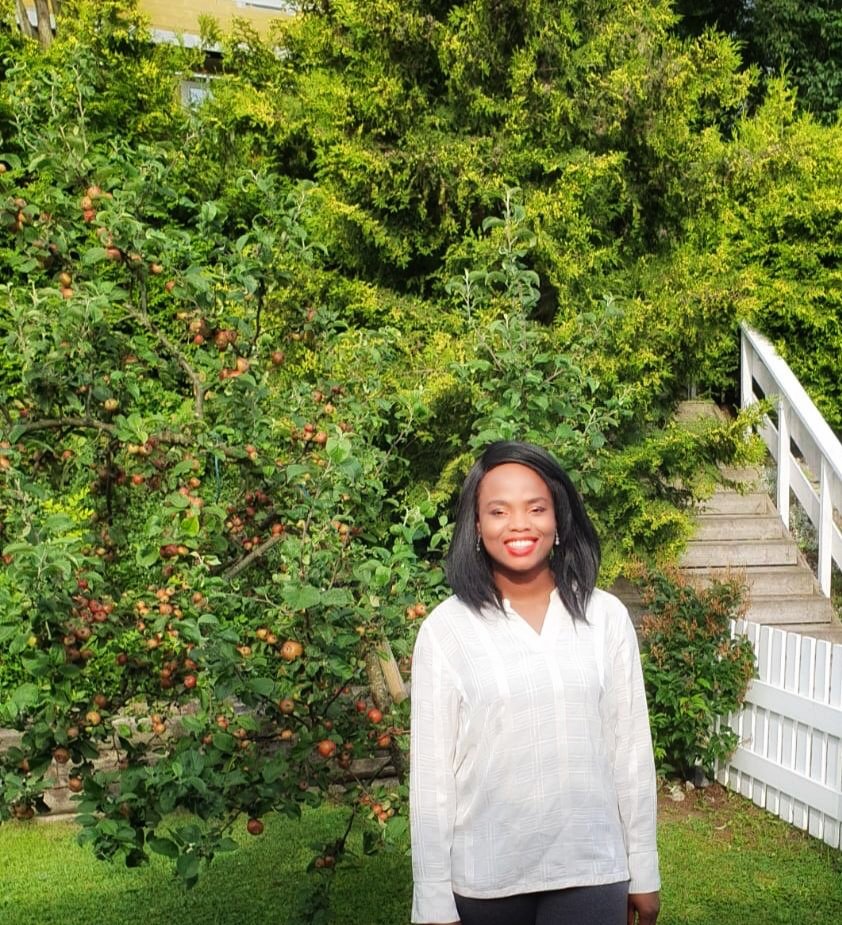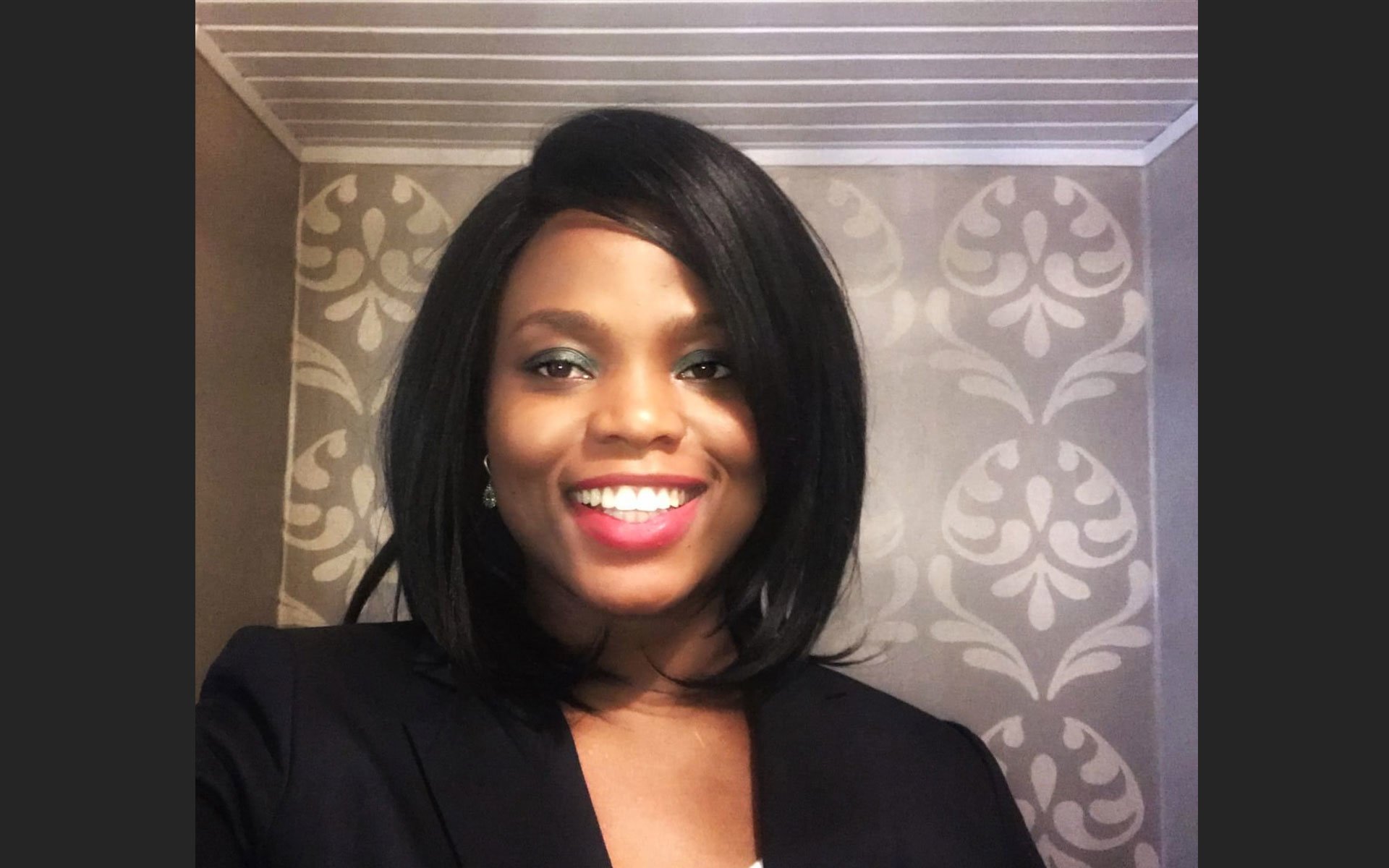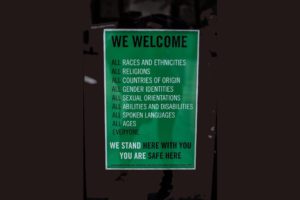At Diversify, we are forever smitten by women who put in the work. They never cease to amaze us. Elizabeth Iluore is a Nigerian, who arrived in Norway from the Netherlands in 2016, as a trailing spouse. Like many trailing spouses, she is highly skilled with a background in finance and public policy.
And while she had previously lived in two other European countries and understood the challenges of migrating to a new country prior to her big move to Norway, as she puts it, she was unprepared for the negative job market stories she experienced when she arrived. She successfully secured an internship at a tech company. Thereafter, she co-founded Jeci Consulting, which provides financial advisory services to startups. She is also the Founder of Inter-Nationals — the latter of which is the focus of this segment.
Inter-Nationals is an organisation that works with ambitious and skilled internationals who have relocated to Norway as adults. We aim to challenge the status quo on diversity, integration and inclusion, whilst facilitating employment opportunities for its target group. Her inspiration for Inter-Nationals emanates from multiple sources: experience of living in different countries; lessons learned over conversations with many highly skilled yet unwillingly unemployed immigrants in Norway – most of whom are women; observation of highly skilled immigrants taking up survival jobs in Norway; and her passion for applying digital solutions to solving challenges related to integration and job inclusion.
We chose to profile Elizabeth because she is an inspiring trailblazer. She envisioned that the future could be better than the present reality for skilled immigrant women and rationalised that she had the power to do something about it.
In other words, she found a gap and set out to fill it.
Elizabeth is thoughtful, circumspect and acknowledges her unique privileges. When she moved to Norway, she had a comfortable life, albeit not having a job, because her husband worked, thus providing her with a relative ‘semi-calm’ to take on an internship position and work at a Startup. She recognises that had she not had the safety net of her husband’s job then her situation would have been more desperate, especially financially.
Nonetheless, financial security is only one of the many reasons why many women struggle with the lack of opportunities available to them in the Norwegian job market. As we all know, the lack of opportunities in this area of their lives might contribute to an emotional, psychological and physical crippling. And being the pragmatic woman that she is, Elizabeth plans to address the challenges the only way she knows how, by finding a direct solution.
Elizabeth is kind, highly analytical (as you will see in her insights below) and has a calm disposition. She’s exceptionally prudent in all that she does, allowing her a type of enviable patience. At all times when we have been in the same room or engaged with her, she is a scale – weighing all sides, always seeking to find a middle ground and an equitable way forward. When she is not working on Inter-Nationals, financial advisory, and other projects she has set her sights on, she is a mother to an independent, happy, spirited, and lovely little girl.
Her vision for Inter-Nationals is as simple as it is profound. She asks of those of us (policymakers, companies, organisations, start-ups and individuals alike), who are in the position to do something to change the plight of skilled immigrant women in Norway, “Have we done enough? Are we doing enough?”
Read from Elizabeth below.

“Can you tell us a bit about your experience and your inspiration to establish Inter-Nationals?“
I moved to Norway in 2016 after I got married. Having previously lived in two other European countries, I understood the challenges associated with migrating to a new country. However, that didn’t prepare me for the negative job market stories that flooded my ears when I moved here.
I had my baby in 2017, and after weaning her, I got the opportunity to intern with a tech company, after which I co-founded Jeci Consulting. Jeci Consulting provides financial advisory services to startups – mostly in the tech space. Inter-Nationals focuses on social and economic inclusion, so as you can tell, I am passionate about finding digital solutions to integration and inclusion challenges.
My inspiration for Inter-Nationals has come from many sources. They include my personal experience living in different countries, my interactions with the many highly-skilled but involuntarily unemployed immigrant women living in Norway. My inspiration also comes from my analysis of the Norwegian integration policies/practices and how it is overly skewed towards placing people into low level jobs, as though being an immigrant is synonymous with being uneducated. Lastly, Norway has made relatively big progress in terms of gender balance in the workplace, however there is a deafening silence when it comes to creating workplace access for skilled women with immigrant background. divasIT aims to shine more light on this area.
“Who are your target groups and how is your solution addressing the problems they face?“
My target groups are educated and ambitious women with international background, especially those who have migrated to Norway as adults. I often refer to them as plug and play because they require little or no training to start contributing economically and intellectually to society. Most of them are either willing to learn, currently learning or have already learnt Norwegian to a professional level, so language is not so much of a barrier for them.
We believe that diversity, inclusion and integration is a deliberate effort and we are challenging different players to take action. We have mapped out different approaches to addressing the problems faced by (highly-skilled) immigrants in general and the women in particular.
One of such initiatives is called A Letter To … It is a web platform that allows writers and commenters to influence public policies and advocate for change by penning down solutions to Norwegian institutions on issues that directly or indirectly affect immigrants. The idea is that it is not enough to complain about a problem/practice/policy, you should at least suggest a solution. By publishing such letters on our platform, we are moving brilliant ideas from the dinner table to the public domain, where it really matters. We will also send a copy to the relevant institution(s) and any response will be published on the platform.
We are also in touch with different start-up recruitment portals, encouraging them to mirror the features in some public sector jobs adverts that commit to interview at least one candidate that identifies as immigrant, provided that the person(s) is qualified. These adverts have other checkboxes like disabled, cv gaps etc. What checkbox is included varies from advert to advert. One does not get interviewed only by self-identifying in one of the groups, the application has to demonstrate that the candidate has the potential or the capability to do the job effectively. Many women have said to me that, getting an interview alone is a form of validation and that they would rather be rejected by a person than by a computer. We also hope that other non-start-up private companies will take deliberate inclusion measures by activating similar features in their recruitment portals.
Last but not least, we are developing training courses on workplace diversity for both start-ups and the women in our target group. This is based on the feedback we have received from interviewing some start-up founders and recruiters. They say that they are open to international talents but do not have the resources to address some of the issues that might arise from working with people from different cultures, so they prefer to stick with the familiar.
“Why is the start-up space important to bridging the work integration and job opportunities gap for immigrant women in Norway?“
The start-ups of today are the giants of tomorrow. If start-ups are able to cultivate a culture of diversity and inclusion in the early days, then they would have mastered it by the time they scale up.
Also, the start-up space is filled with great minds wanting to use technology to make global impact. By tapping into the underutilized talents readily available to them, they might be able to achieve quick success, while contributing to better integration and inclusion in the Norwegian society.
My experience in the startup space has been mutually beneficial in that it helped me integrate better into the Norwegian society. I have built new friendships and contacts of my own. I have become better aware of the many support tools available to new entrepreneurs. Also, I was able to structure my working hours in such a way that I could attend intensive Norwegian classes up to B2 level. I even did an internship with a private equity firm as part of my language training, and there I got to learn more about investment from the viewpoint of the investor.
The language and the investment internship have been useful in my current job. At this point, I must acknowledge the Bærum voksenopplæringssenter for developing a fast progression Norwegian language course for learners with prior higher education. Now fast learners do not have to spend 3 years formally learning Norwegian, I hope other kommunes will begin to offer such courses.
“How is diversity and inclusion reflected in the Norwegian start-up space? Is there still a gap that needs filling?“
There are some statistics and surveys of the demographics of people working in the Nordic start-up space. I will answer this question with some of these numbers because I think that they are reflective of reality.
According to the 2018 Nordic Startup Salary Survey, 74% of people in the start-up space are men and 26% are women. 54% have between 0-4 years professional experience, 21% have between 5 – 9 years of experience and 26% have over 10 years’ experience. The survey did not measure diversity in terms of country of origin but the StartupLab in Oslo collects such data for current and alumni companies in the lab. According to its 2012 to 2018 statistics, the lab has had 251 member and alumni companies, out of which 24% have female founders. The companies in the lab have generated 1390 jobs, of which 21% are held by women. Lastly, there are about 70 countries previously or currently represented in the lab.
These numbers clearly indicate that there is still much work to be done by the start-ups themselves, policymakers, start-up clusters, Innovation Norway and other companies like Inter-Nationals.
“We all know that the start-up space have some financial limitations – with regards to ability to pay a salary, or some times, even provide a stipend for your target group. How does your initiative navigate this hurdle?“
It all depends on the stage of the start-up. Bootstrapping is quite common for early stage start-ups but some start-ups have good liquidity and can pay a decent salary. Also, many start-ups offer stock options as a way to keep and motivate their employees; especially during periods of uncertainty. According to the 2018 Nordic Startup Salary Survey, 67% of employees own a stake in the company that they work for.
Many of the women in my target group have the safety net of their working partners and can easily take more risk in making career choices. So, I usually say do your research on the company and take advantage of start-up flexibility to negotiate your work and pay structure.
“How might your target group better make themselves attractive to the start-up space?“
Most Norwegian start-ups are looking to go international, and the women in my target group already possess the qualities that these start-ups need, which is know-how, zeal and international insights.
However, recruitments in the start-up space is often through personal/professional network than through formal recruitment processes. At Inter-Nationals, we emphasise networking and are building partnerships with start-up clusters and other players to facilitate networking between internationals and Norwegian start-ups.
We also collaborate with job placement organizations to organize CV and interview preparedness workshops. The learnings are useful when applying to both start-up and non-start-up jobs.
“Do you have any advice for people who are reading this who might fall into the target group your initiative caters to?“
I try not to give advice to the women in my target group, I mostly try to understand their struggles. I have had it relatively easier, so I think that I run the risk of sounding insensitive, the risk of saying ‘you have not done enough’.
Pray tell, how do I advise the lady who has previously held a mid-management position in a MNC before moving to Norway with her husband who got a job here? What do I tell her after she has taken a 2-year masters programme at a Norwegian university? After she has heard that oh the interview was great, but you do not have enough Norwegian experience for the senior position and you are overqualified for the junior position? Or what do I tell the trained geologist who has sent her cv to many start-ups, indicating her willingness to work for free but did not get a response from most?
I have chosen to rather direct my advice to Norwegian start-ups and businesses. I challenge them to reflect and answer the question ‘have we done enough?’







Really inspiring. Your strength and zeal is!!!
In a lot of ways I’m motivated by your story to do more- push beyond my comfort zone.
You’re on to a good thing here. This is what the world needs- selflessness and the drive to find solutions, and make it happen.
Glad to have you in my life, Elizabeth.
Cheers to many more successes!!!
I couldn’t be more happy to say the least. Great innovation, great thinking. I cannot conclude without saying a big thank you for giving everyone an opportunity.
“‘I mostly try to understand their struggles. I have had it relatively easier, so I think that I run the risk of sounding insensitive, the risk of saying ‘you have not done enough’.“
Elizabeth, the power, self introspection and regard for your fellow human in this statement is palpable. This is a legacy making statement and vision because your cause lives outside of you. Thank you for aspiring for the greater good and using your genius so effectively. 😘
In a world where there are more talkers than doers, it is a breath of fresh air to see someone taking the bull by the horn to inspire change in their little way. Fantastic interview & every read was definitely worth my time.
This is so inspiring , it is a ray of hope for legitimate migrants more grease to your elbow
Thank you so much for all the advice, insight and facts you shared. They are truly shining a pathway forward for others to do the same.
This is so amazing and inspiring.